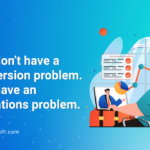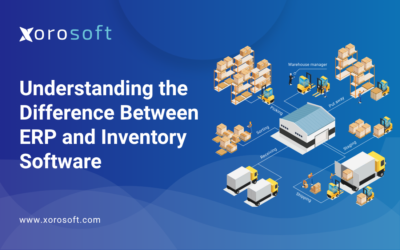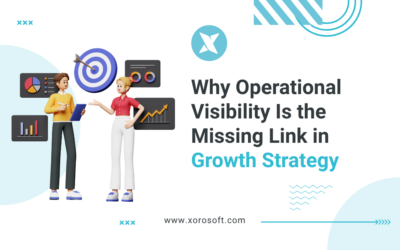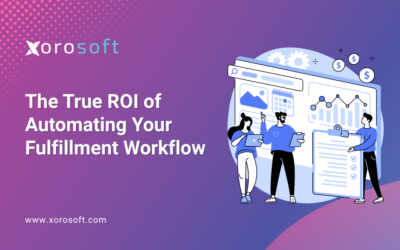
Introduction to Service Management and Operational Challenges
In today’s fast-paced business environment, effective service management is crucial for the success of any organization. Service-based companies face unique operational challenges that can hinder their ability to deliver high-quality services efficiently. These challenges include maintaining accurate inventory records, optimizing accounting processes, and ensuring seamless communication between departments. However, with the right tools and technologies, these challenges can be overcome. One such tool is an Enterprise Resource Planning (ERP) system, which can revolutionize the way service-based companies manage their operations.
What is an ERP System and Its Benefits for Service Management
An ERP system is a comprehensive software solution that integrates various business processes, such as inventory management, accounting, and customer relationship management, into a single unified platform. This integration enables service-based companies to streamline their operations, improve efficiency, and enhance overall productivity. By centralizing key functions and data, an ERP system eliminates the need for manual data entry and reduces the risk of errors. Moreover, it provides real-time visibility into critical business information, allowing managers to make informed decisions based on accurate data.
The benefits of implementing an ERP system for service management are manifold. Firstly, it simplifies and automates complex processes, such as order management, invoicing, and financial reporting, thereby saving time and reducing administrative costs. Secondly, it improves inventory management by providing real-time updates on stock levels, enabling businesses to optimize their purchasing and avoid stockouts or overstocking. Thirdly, an ERP system enhances customer service by providing a 360-degree view of customer interactions, enabling personalized service and timely response to customer queries.
Key Features of XoroERP’s ERP Solution
XoroERP is a leading provider of ERP solutions specifically designed for service-based companies. Their ERP system offers a range of key features that can help overcome operational challenges and streamline service management. One of the standout features of XoroERP is its robust inventory management system. With real-time visibility into inventory levels, businesses can accurately track stock, manage reordering, and avoid costly inventory discrepancies. This feature enables service-based companies to optimize their inventory levels, reduce carrying costs, and ensure timely delivery of services.
Another key feature of XoroERP is its comprehensive accounting module. This module simplifies financial processes by automating tasks such as invoicing, billing, and financial reporting. By integrating accounting functions with other business processes, XoroERP eliminates the need for manual data entry, reducing the risk of errors and ensuring accurate financial records. Additionally, the system provides customizable financial reports, giving businesses valuable insights into their financial performance and enabling them to make informed decisions.
Streamlining Inventory Management with XoroERP
Efficient inventory management is crucial for service-based companies to deliver services on time and optimize their costs. XoroERP’s ERP system offers a range of features that streamline inventory management and ensure accurate stock control. Firstly, the system provides real-time updates on inventory levels, allowing businesses to monitor stock levels and plan for future demand. This visibility enables companies to avoid stockouts, reduce holding costs, and improve customer satisfaction by ensuring timely service delivery.
XoroERP’s ERP system also includes advanced inventory tracking capabilities. With features such as barcode scanning and serial number tracking, businesses can accurately track and trace their inventory, making it easier to identify any discrepancies or issues. Furthermore, the system allows for automated reordering based on predefined stock thresholds, ensuring that businesses never run out of essential items. By optimizing inventory levels, service-based companies can reduce carrying costs and free up capital for other business investments.
Enhancing Accounting Processes with XoroERP
Accurate and efficient accounting processes are vital for the financial health of service-based companies. XoroERP’s ERP system offers a comprehensive accounting module that automates key financial tasks and ensures accurate financial records. The system automates processes such as invoicing, billing, and financial reporting, eliminating the need for manual data entry and reducing the risk of errors. This automation saves time and improves the efficiency of the accounting department, allowing them to focus on more strategic tasks.
XoroERP’s accounting module also provides customizable financial reports, giving businesses valuable insights into their financial performance. These reports can be tailored to specific requirements, allowing managers to analyze key financial metrics and make informed decisions. By having access to real-time financial data, service-based companies can identify areas of improvement, optimize costs, and make strategic investments. Additionally, the system ensures compliance with financial regulations and standards, reducing the risk of penalties or non-compliance.
Implementing XoroERP in Your Business: Tips and Best Practices
Implementing an ERP system can be a complex process, but with proper planning and execution, the benefits are well worth the effort. Here are some tips and best practices for a successful implementation of XoroERP’s ERP system in your service-based business:
-
Define clear objectives: Clearly identify the goals and objectives you want to achieve with the implementation of XoroERP. This will help you align your implementation strategy and ensure that the system meets your business requirements.
-
Engage key stakeholders: Involve key stakeholders from different departments in the implementation process. Their input and feedback will be valuable in customizing the system to meet the specific needs of each department.
-
Provide comprehensive training: Ensure that all employees receive comprehensive training on how to use the XoroERP system effectively. This will minimize resistance to change and maximize the adoption of the new system.
-
Gradual implementation: Consider implementing XoroERP in phases rather than all at once. This will allow for a smoother transition and give employees time to adapt to the new system.
-
Regular evaluation and optimization: Continuously evaluate the performance of XoroERP in your business and identify areas for improvement. Regularly review and optimize your processes to maximize the benefits of the system.
By following these tips and best practices, you can ensure a successful implementation of XoroERP’s ERP system in your service-based business.
XoroERP vs. Other ERP Solutions: A Comparison
When choosing an ERP system for your service-based company, it’s essential to compare different options to find the best fit for your business. Here is a comparison of XoroERP’s ERP solution with other popular ERP systems in the market:
-
XoroERP: XoroERP is specifically designed for service-based companies, offering comprehensive features for inventory management, accounting, and customer relationship management. It provides real-time visibility into critical business information, enabling businesses to make informed decisions based on accurate data.
-
Competitor A: Competitor A is a widely used ERP system that caters to various industries, including service-based companies. While it offers similar features to XoroERP, it may lack the industry-specific functionality and customization options that XoroERP provides.
-
Competitor B: Competitor B is known for its robust accounting module and financial reporting capabilities. However, it may lack the integrated inventory management features that XoroERP offers, making it less suitable for service-based companies.
Ultimately, the choice between XoroERP and other ERP solutions depends on your specific business requirements and objectives. It is advisable to evaluate the features, functionalities, and industry specialization of each system before making a decision.
Xorosoft’s Customer Support and Training Services for XoroERP
Xorosoft, the provider of XoroERP, understands the importance of excellent customer support and training services to ensure a seamless implementation and optimal usage of their ERP system. Xorosoft offers comprehensive support services to assist businesses in every step of the implementation process. Their team of experts is available to provide guidance, answer questions, and resolve any issues that may arise during the implementation or daily usage of XoroERP.
In addition to customer support, Xorosoft provides thorough training programs to ensure that businesses can fully leverage the capabilities of XoroERP. Their training sessions cover all aspects of the system, from basic functionalities to advanced features, ensuring that employees have the skills and knowledge to use the system effectively. Xorosoft’s commitment to customer support and training sets them apart from other ERP solution providers, ensuring a smooth and successful implementation of XoroERP in your service-based business.
Conclusion: Why XoroERP is the Ideal ERP System for Service Management
In conclusion, XoroERP’s ERP system offers a comprehensive solution for service-based companies to overcome operational challenges and streamline their service management processes. With features such as robust inventory management and advanced accounting capabilities, XoroERP enables businesses to optimize their operations, enhance productivity, and improve customer satisfaction. The system’s user-friendly interface, industry-specific functionality, and excellent customer support make it the ideal choice for service-based companies looking to transform their operations.
If you’re ready to experience the benefits of XoroERP’s ERP system for your service-based business, book a demo with Xorosoft today and take the first step towards streamlined service management and operational excellence.









